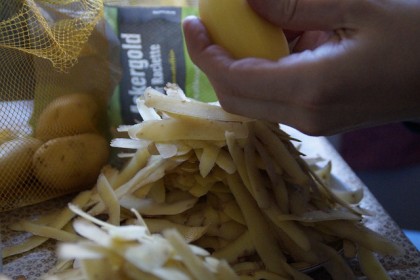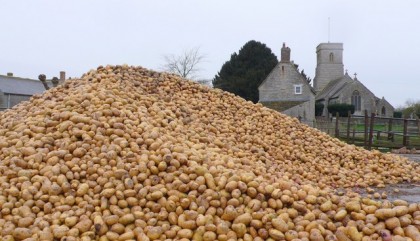Yesterday’s Feast Day of the Patron Saint of Everyday Life
Devra Torres | Jun 27, 2015 | 1 cmt

We're in the throes of getting ready to move, but these thoughts came to me as I was making my latest to-do list, and I wanted to share them.
Yesterday was the feast day of St. Josemaria Escriva, the founder of Opus Dei and the patron saint of ordinary, everyday, workaday life. I don't have the mental wherewithal right now to explain the novelty of his whole vision--you can learn more here--but these are a few highlights:
1. A good kind of "secularism."
In his day, the conventional wisdom was that if you wanted to give your life to God--or take religion seriously at all--that meant you had a vocation, and THAT meant you were supposed to become a priest or a nun. Laypeople were looked upon as second-class citizens, spiritually speaking. Their loftiest mission was to "pay, pray, and obey." Most people were called to squeak into Purgatory; only a chosen few were called to sainthood.
But long before the Second Vatican Council affirmed a universal call to holiness, St. Josemaria was shocking people by suggesting that all human persons were called to "sanctify their work, sanctify themselves through their work, and sanctify others through their work." And "work" didn't just mean paid employment; it was more like a shorthand for something that encompassed all of everyday life, from brushing your teeth to taking care of your insurance paperwork to changing your kid's diapers.
2. A good kind of "materialism"
Life is not supposed to be divided into a "religion compartment" and an "everything else" compartment. Everything is fair game--everything can bring you closer to God and draw down grace on you and everybody else who needs it. This is of a piece with the way St. Therese and Bl. Mother Teresa talk about how there are no little things in the eyes of God, and the point is not how impressive an action is but how much love it's done with. In one memorable snippet from one of his books, Furrow, he says:

You are writing to me in the kitchen, by the stove. It is early afternoon. It is cold. By your side, your younger sister--the last one to discover the divine folly of living her Christian vocation to the full--is peeling potatoes. To all appearances--you think--her work is the same as before. And yet, what a difference there is!
It is true: before she only peeled potatoes, now, she is sanctifying herself peeling potatoes.
The conventional wisdom of the day was that some are called to sanctify themselves and others are called to peel potatoes. Or, at most, your best bet was to get the peeling of potatoes over with so you could get on to something more "religious." This divorce between the material and the spiritual world would have been alien to the early Church, but it had come to seem unremarkable 2000 years later.
The trouble is, for the vast majority of people who don't live in convents and monasteries, and even for many who do!--everyday, "material," life takes up an enormous chunk of their day,

and the leavings of their schedule--the time available for the important, "spiritual" kind of stuff-- is minimal at best.
3. A good kind of "anticlericalism"
(Katie's also written on this topic.) You can see how a certain downplaying of clericalism fits in with the other two, but it was much misunderstood at the time. In Spain, priests and nuns were being violently attacked and murdered, just for being priests and nuns. It must have seemed like a no-brainer to insist on honoring priests in whatever way possible. But often this honor was understood as imagining that they had a call to holiness and their congregations had a call to passivity. The priestly vocation was seen as Moses' vocation to be the only one to climb Mount Sinai and brave direct contact with God; the vocation of the laity was seen as the people of Israel's role: to cower at the foot of the mountain while the special, chosen one received God's message and instructed them on how to apply it. But the New Covenant breaks down the separation, giving all of us a priestly, kingly, and prophetic vocation, without taking anything away from the honor due to the sacramental priesthood.

So, peelers of potatoes, unite! Here's to the sanctification of the unglamorous!

Comments (1)
Nanda
Jun 29, 2015 3:56pm
Thanks, Devra, for the invitation to look for the sacred in the ordinary! And Godspeed with the move...